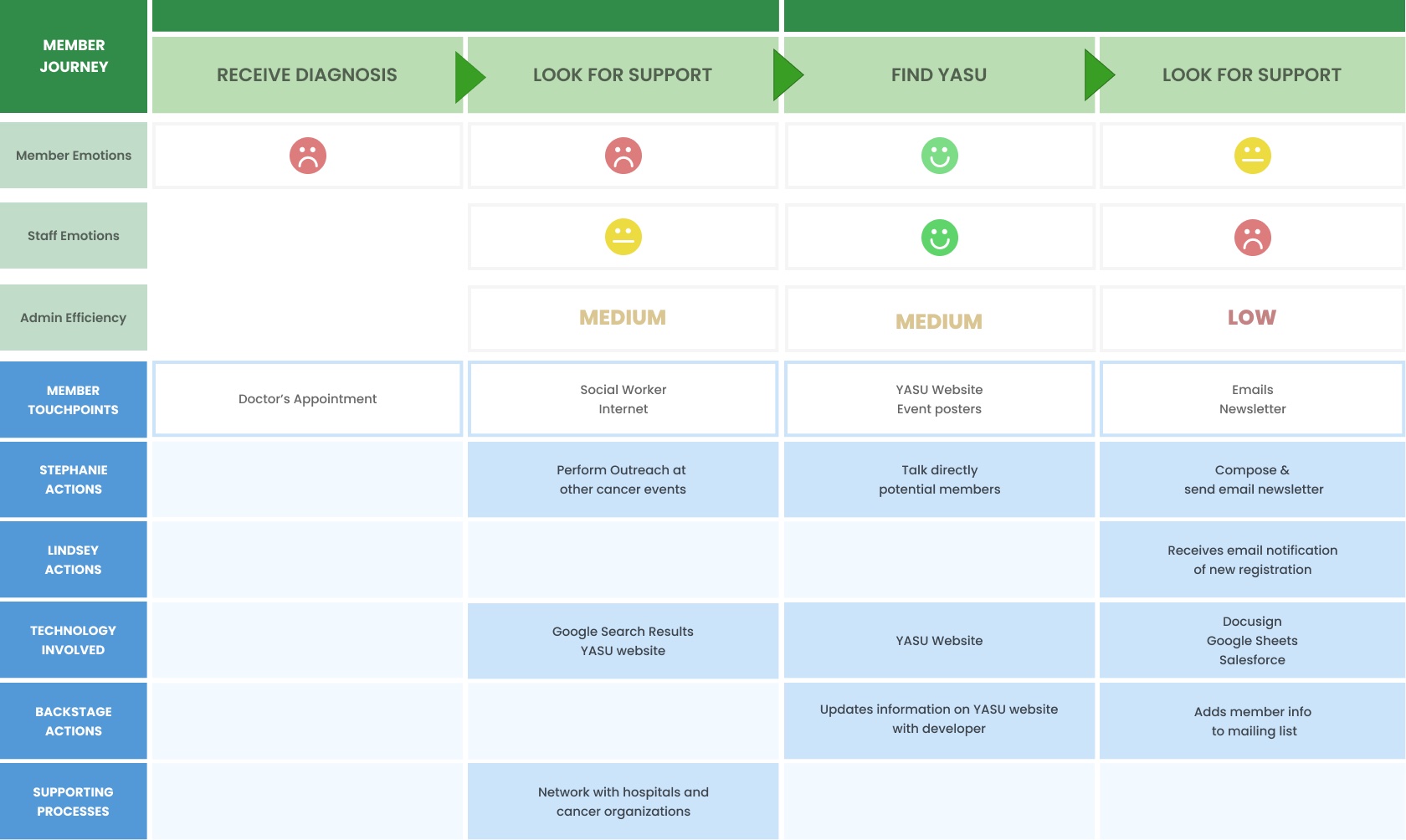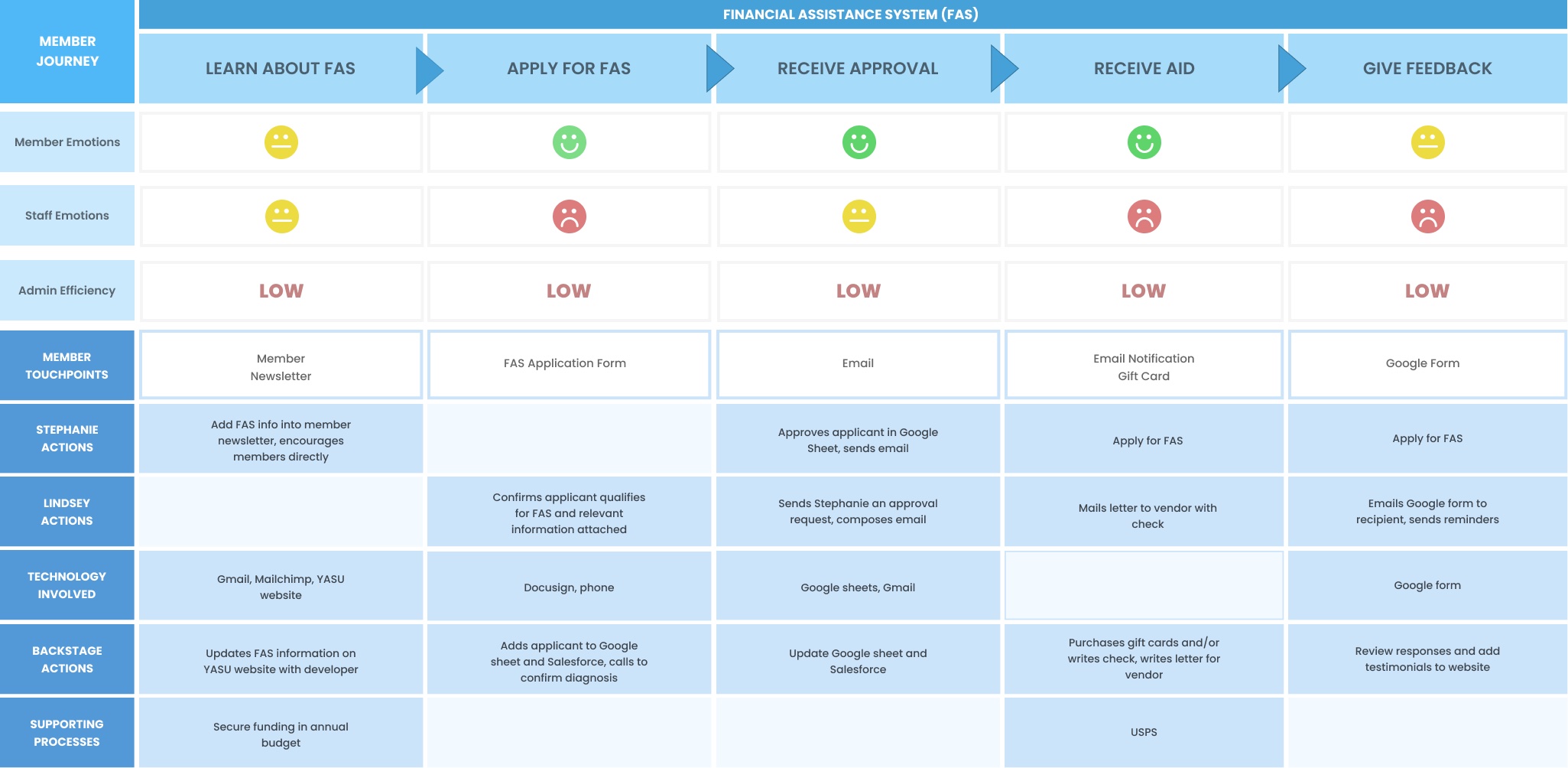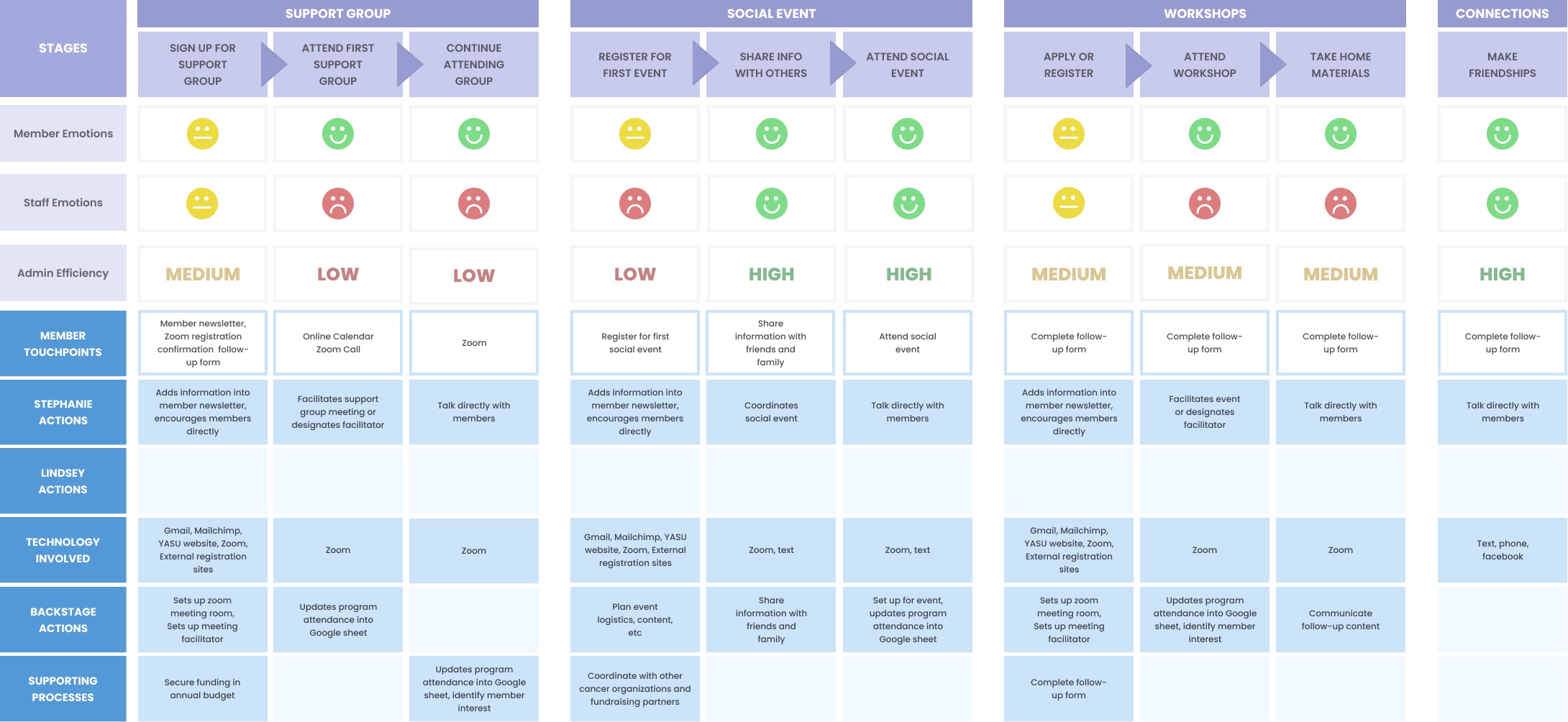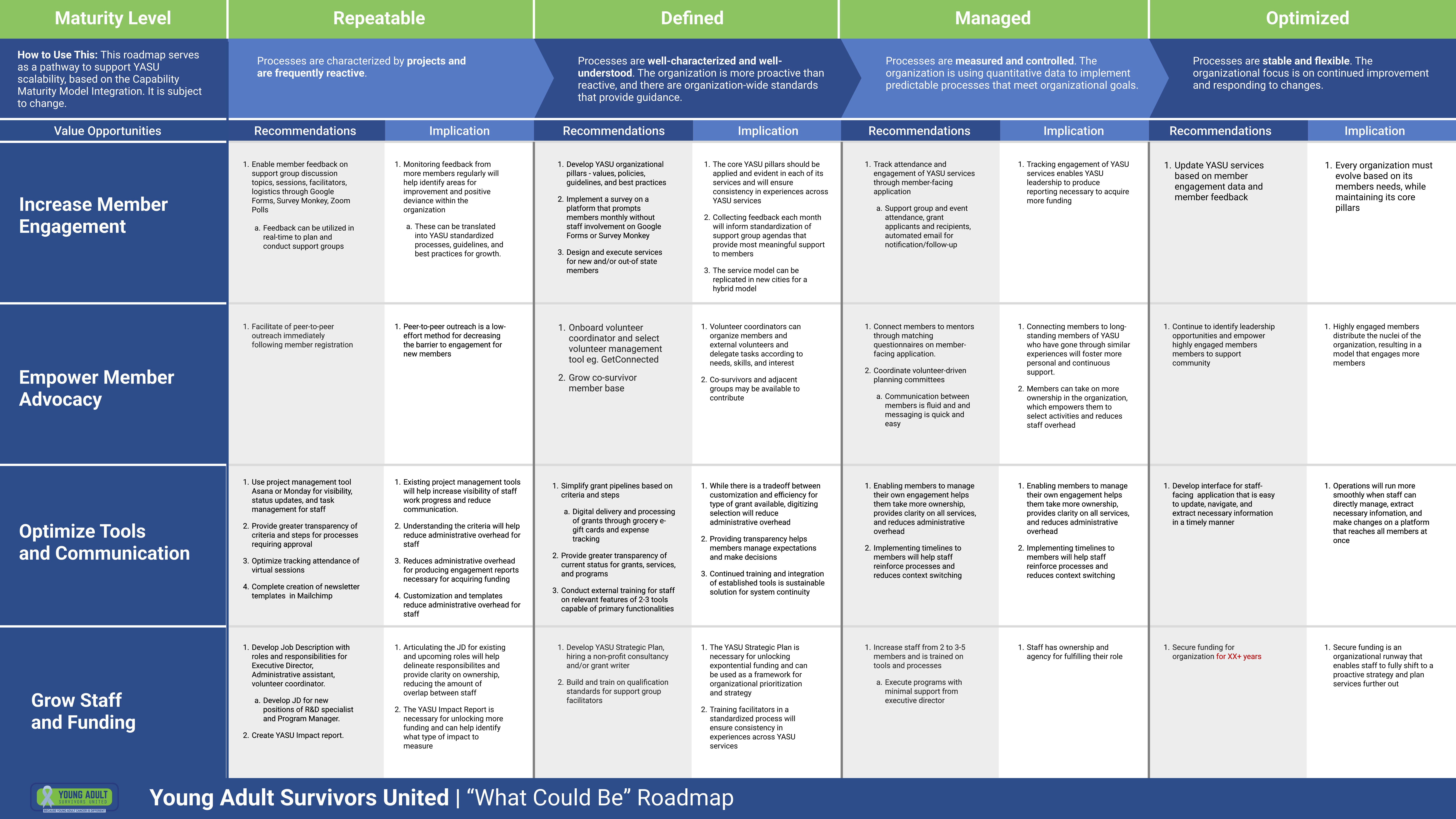Overview of Methods
15
Interviews
12
Observations
8
Literature Reviews
2
Surveys and Data Analysis
An Organization that Cares
As a non-profit for a community of young adult survivors and co-survivor, it is YASU's constant goal to empower its members to accept support through emotional, mental, social, and financial services. However, due to limited staff and workflows created during 2020 (height of the coronovirus pandemic), they became where their processes will no longer be sustainable has they continue to grow in members.
Core Finding 1: Right Type, Right Time, Right Amount
YASU’s services have the highest impact when the right type and right amount of support is given at the right time.
Right Time
Providing services appropriate for where a member is in their cancer journey is the best way to reach them.
Right Type
The type of service (emotional, financial, social, etc.) members may need will impact the degree of engagement they will seek from the organization.
Right Amount
Members have varying preferences and comfort levels when it comes to how active and engaged they are with YASU’s services. YASU staff has been recognizing and matching members’ preferences through individual connections.
Core Finding 2: High-Touch Human Interactions
YASU staff is effective because they know people on an individual level and can presume their needs, but the support that YASU currently provides is limited due to time and resource constraints.

Criteria for Solution
Recognize Members Needs
Proactive recognition of the needs of cancer survivors and co-survivors that they may be unaware of themselves.
Transparency of Services
Allowing members to see details of support services that may be in question during points of engagement.
Give Members Permission
Providing services in way that allow easy acceptance and adoption by members.

“What Is” and “What Could Be”
At the start of our project, we were prompted with the challenge of streamlining YASU’s financial assistance system (or FAS), which means improving or simplifying the end to end process of a member applying for the FAS to the member receiving the grant, and all the steps in between. In the early stages of our research, we were able to better understand how the staff operates, what tools are in play, how the members engage in the system, and how workflows are interconnected. From there, we were able to understand and analyze the current “what is” state of YASU with regards to membership, grants, and programs. We then translated our data and findings to create a future “what could be” model that focuses on YASU scaling from a member, support, and operations perspective.
“What Is” Model
Membership
Currently, members find out about YASU and the services offered through Google search, which requires support though website management and email. This also creates a burden on YASU staff, as they have to use a variety of tools and resources to bring in new members and grow the organization using unsustainable processes.
Grants
Distributing grant funding through financial aid is a major feature among YASU’s services. However, the current state of this service requires a lot of backend work, and forces YASU staff to work inefficiently, stealing time away from growth strategies for the organization.
Programs
YASU’s programs fall under four main categories, including support groups, social events, workshops/informational events, and forming connections. Each of these four areas has its own processes, yet there is still a large overlap For each area, members have to find, register, and then receive the information they need. When this occurs, YASU staff are required to operate a multitude of tools and handle a large amount of information to make sure the program is running smoothly.

Membership
Notice when members are looking for resources during intial diagnosis and registration, there is a misalignement among members and YASU staff. This is primarily due to the need for YASU staff to readily distribute information to members.

Grants
The Financial Assistance System proves to have many points of misalignment among members and YASU staff. There is an opportunity to offload staff effort, by exploring ways to establishing effective error prevention measures to the application process.

Programs
Attending workshops proves to be an desirable experience among YASU members. Interview participants have described the positive effect these programs have on their lives. Many of them have expressed that there was difficulty attending events due to their schedule or current health status. Currently, the misalignment between members and YASU staff involves the need to track impact and attendance of events. There is a valuable opportunity to explore ways for members to have greater planning and individualization of support groups, and YASU staff able to document the activity of their community.
“What Could Be” Model

Increase member engagement
Developing YASU’s organizational pillars with standardized processes, policies, and guidelines will ensure consistency across YASU’s services. Creating a systematic process to get feedback from members and track their engagement across services will allow YASU to evolve the organization based on member needs.
Empower member advocacy and peer support
Creating systems for volunteer work, both from YASU members and people outside the organization, will allow for support to travel to parts of the organization that weren’t engaged before. Member-to-member outreach and support will lower the initial hurdle of engagement for new members.
Optimize tools and communications
Creating efficient workflows will allow YASU staff to have more time to work on expanding services. Allowing for more transparency around the current status of these processes will also enable members to manage their own engagement.
Growing staff and funding
Clearly defining and delegating responsibilities to avoid overlap in workflows will enable YASU to hire more staff as they expand. There is also a stronger need for more facilitators for support groups, with qualification standards and training to ensure that support groups can continue to have high impact as YASU grows.